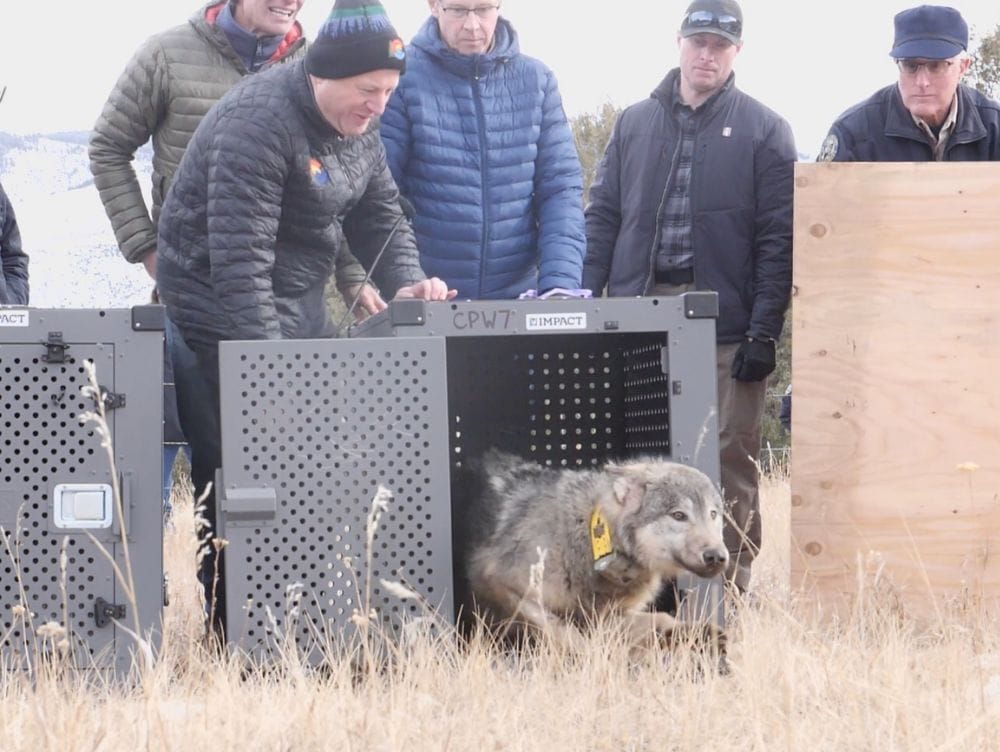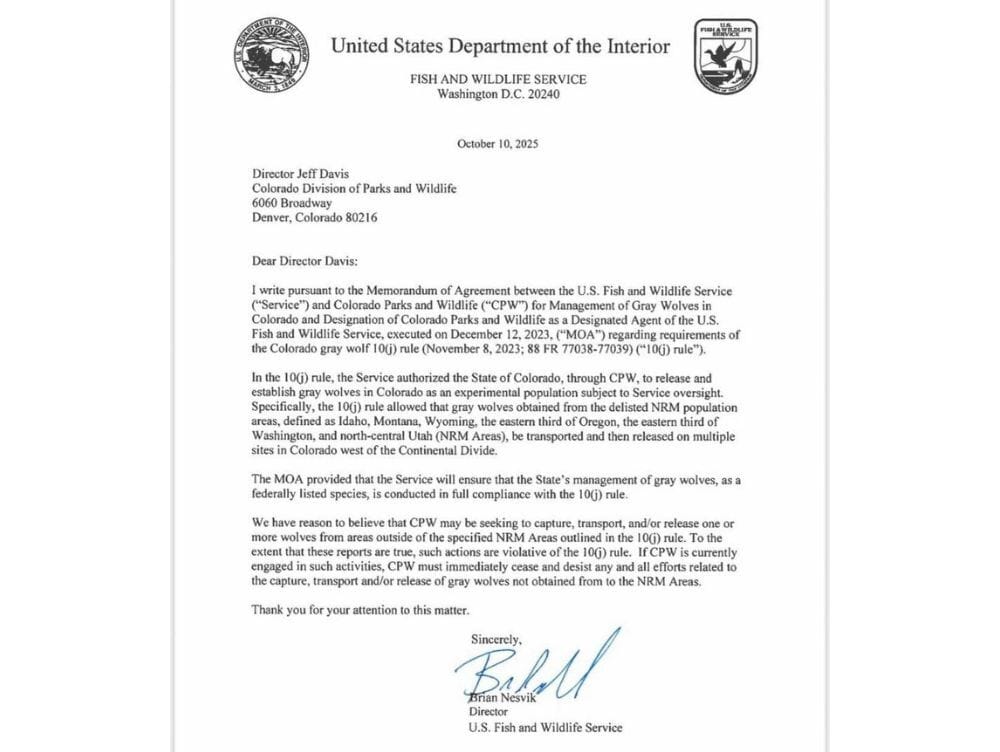
Jerry Neal | Colorado Parks and Wildlife
Just as trade talks regarding maple syrup tariffs cratered last week, news of another Canada-USA trade deal is now making headlines. Taking a break from the traditional dealings in aluminum, steel or Canadian whiskey, the U.S. Fish and Wildlife Service has since entered the chat demanding an immediate stop to importing gray wolves from Canada for Colorado’s controversial reintroduction program.
Director Brian Nesvik’s October 10th cease-and-desist letter, which is aimed at Colorado Parks and Wildlife and Governor Jared Polis, states that the importation of Canadian canines is in direct violation of federal rules favoring Rocky Mountain wolves over British Columbia’s. The directive now threatens to derail the state’s voter-mandated efforts to restore wolves to the Rockies, pitting federal oversight against local conservation goals and rural livelihoods.
The letter arrives at a precarious moment for Colorado Parks and Wildlife, which has already released about 30 wolves since late 2023 but faces sourcing shortages from reluctant U.S. neighbors. With winter releases planned, which include potentially 10 to 15 more animals under a pre-existing agreement with British Columbia, Nesvik's intervention could force a program pause, legal showdown, or even the removal of previously imported wolves. As rural ranchers cheer the federal pushback, environmental advocates decry it as political meddling, highlighting the deep divides over wolves' return after a century of absence.

Colorado's gray wolf saga began with Proposition 114, narrowly approved by voters in November 2020 (50.9% to 49.1%), directing CPW to reestablish a self-sustaining population of at least 50 wolves west of the Continental Divide. The initiative, championed by urban environmentalists, envisioned 30 to 50 translocations over three to five years, with long-term goals reaching up to 200 animals. Managed under a federal 10(j) rule designating the wolves as a "nonessential experimental population," the program allows flexible management but emphasizes genetic compatibility with delisted Northern Rocky Mountains wolves from states like Idaho, Montana, and Wyoming.
Releases kicked off in December 2023 with 10 wolves from Oregon, but challenges mounted quickly including high mortality from vehicle strikes, shootings, and predation; ongoing livestock depredations; and sourcing woes as NRM states—including Idaho, Montana, Wyoming, and the Colville Tribe—declined or withdrew offers, citing their own management priorities. By January 2025, CPW turned to British Columbia, releasing 15 wolves despite backlash, with only 10 surviving by mid-year.

Colorado Parks and Wildlife
The program's rural opposition has been fierce. Western Slope counties voted overwhelmingly against Prop 114, and groups like the Colorado Wool Growers Association and outfitters have decried economic hits from livestock losses and reduced elk hunting opportunities.
Nesvik's letter accuses the state of violating the 10(j) rule and a 2023 USFWS permit by pursuing non-NRM sources.
"We have reason to believe that CPW may be seeking to capture, transport and/or release one or more wolves from areas outside of the specified NRM Areas," Nesvik wrote in his letter. “To the extent that these reports are true, such actions are violative of the 10(j) rule.”
The directive was spurred by Republican gubernatorial candidate Greg Lopez, who probed sourcing issues in June 2025 at rural constituents' urging and co-signed a September letter from over two dozen agricultural and county groups demanding federal intervention.
With no compliant wolf sources left, new releases are stalled, threatening to kneecap Colorado’s program. As of right now, CPW has not formally replied but insists on full compliance with federal and state laws.
As three new packs roam and depredations continue to spark probes, Colorado’s wolf dreams are now facing a federal chokehold and a cross-border showdown. As traditional trade talks with Canada falter, the ongoing dispute over their wolves is also becoming increasingly untamed.

